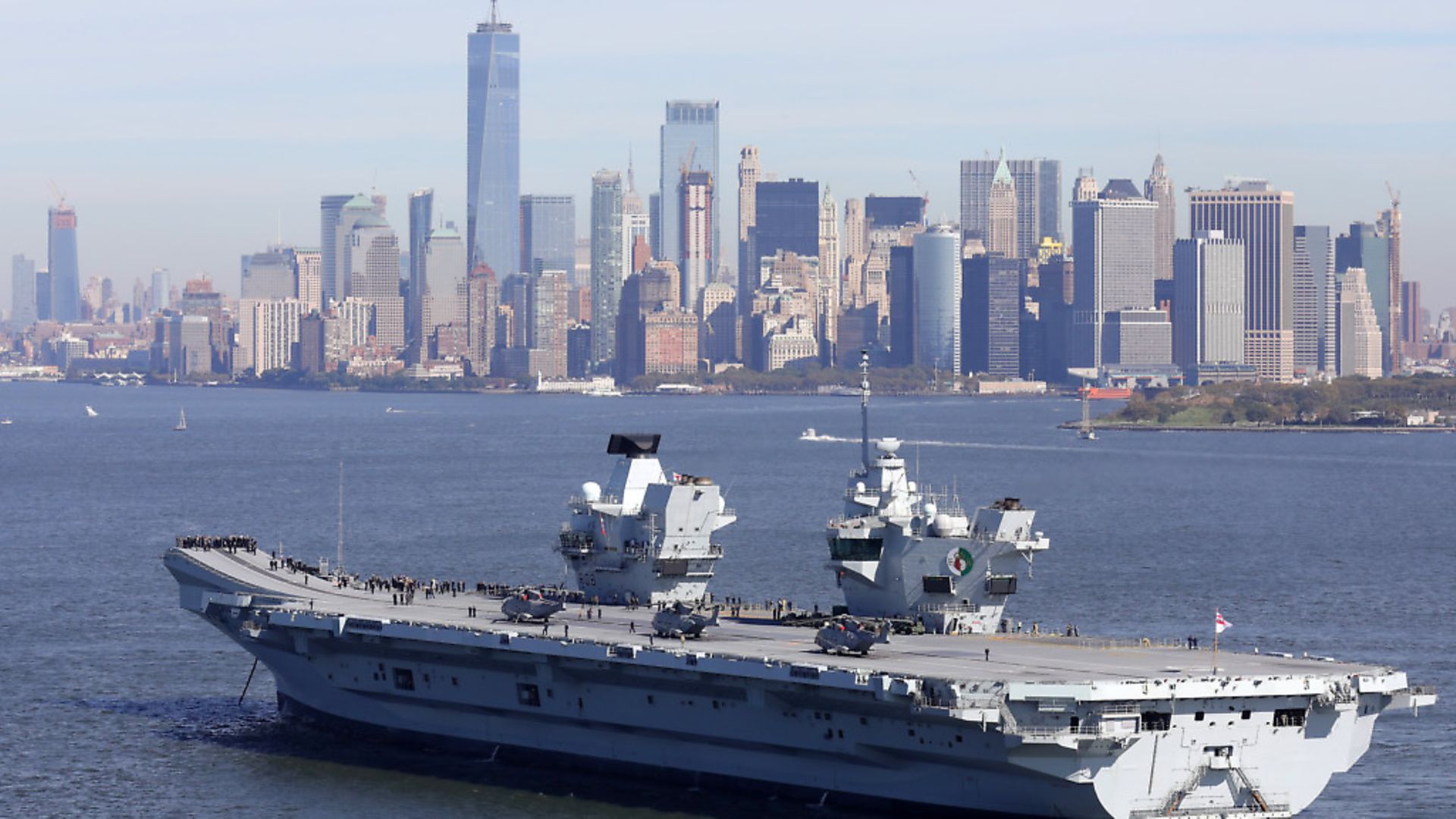
The reality of Britain’s position after it leaves the EU is becoming clearer
As the Brexit discussion continues, at ever-higher volume with ever-decreasing coherence, its enthusiasts have found a new concept, a new mantra, to shout it at ever-increasing frequency.
It has become impossible to say that the UK will get a fantastic deal from the EU, because of our brilliant leverage. We don’t hear so often any more about how German car manufacturers will intervene to make sure we get our way. And we really don’t hear any more about how much better off we’ll be overnight. These cries have been replaced by promises of ‘adequate food’.
Faced with the grim realities of Brexit, its cheerleaders are instead relying on nostalgic cries of ‘Global Britain’: leaving the EU, they argue, will let us take our place on the world stage in a way we haven’t before.
It’s lucky they leave this idea so ill-defined, as there is no possible way we can try to define Global Britain that leaves it as anything more than a fiction. In the early days after the vote, Brexiteers said that Global Britain was about trade – that after leaving the EU we would be able to sign more and better deals, at speed.
Liam Fox, the man who resigned the defence secretary role in disgrace after apparently being unaware that bringing an undeclared lobbyist along on his official overseas visits was a bad idea, promised he’d have 40 such deals signed by the time the UK left the EU.
This week, Fox sought much fanfare for a ‘deal’ he finally signed – one which was, in reality, an agreement with Switzerland that we could continue to trade on the same terms that we do now once we leave the Union. He heroically managed to maintain the status quo – with just one of our trading partners.
Elsewhere, Japan has publicly stated it will not offer the UK the same terms as a standalone country as it was willing to offer us when we were part of the world’s largest economic bloc, known for its ferocious trade negotiations.
And the EU itself – which, thanks to geography and our long-standing relationships, will remain our closest trading partner – has set out several models for how we can trade in future, but made it clear no non-EU nation will be offered terms as generous as a member would be. If they did, after all, why would anyone need to be a member?
Some like to turn to the idea of the Anglosphere – the USA, Canada, Australia and New Zealand – and the idea that unified by a common language (for some reason they leave out several other countries that share English as a language) there is an effective political and cultural bloc which can be established.
These five nations are already close military and intelligence allies – they form the so-called Five Eyes spying coalition – unimpeded by the UK’s membership of the EU. But when it comes to thinking beyond that, this union makes little sense. The countries are as geographically dispersed as it’s possible to be, seriously limiting trade.
The USA has made it clear there will be no favourable trade deal for the UK without major concessions on food and agricultural standards. And the USA, Australia and New Zealand were among the first nations laying objections to the UK attempting a simple transition to ‘WTO terms’. Business, clearly, is business.
Even culturally this union is less close than those who speak of it tend to imagine: because we share a few hit television series doesn’t a common culture make – any Brit who has actually lived in America (or any American who has done the reverse) will quickly tell you it’s a huge mistake to think of the other country as the UK with a different accent. We have as much or more in common with our near neighbours in Europe as with the USA.
Part of the mistake of the myth of ‘Global Britain’ is just a misunderstanding of our size as a country. We are one of the world’s largest economies, and around one in 100 on the planet right now live in the UK. We are – luckily for our egos, which would not be able to handle it – not a small country.
But we are also not at the absolute top table, one of the poles around which global affairs coalesce. The USA is one such pole, even if no-one right now is quite sure exactly what it stands for. China is another. The EU is a pole, representing a certain vision of a multilateral world order. Russia seeks to be another.
Could Britain – at this stage only a borderline top-tier military power, despite this week’s eye-catching decision to deploy new aircraft carrier HMS Queen Elizabeth to the Pacific region – really claim to be such a pole? Who would rally to it, and why? What would our distinctive vision be: be part of the world, be a global economy, but only if you let the UK get its way, even if we strop out?
Global vision as a rallying cry reveals, after even shallow thought, all of the incoherencies of the Brexit position. A call for isolationism, while disastrous, would at least be honest. But the Global Britain logic for Brexit calls on us to leave the largest political and economic union on the planet, over which we held huge sway, to… somehow become a bigger player on the world stage.
These are the people who led the charge for Brexit. With differing degrees of enthusiasm, these are the people Theresa May and Jeremy Corbyn are following, taking us all with them. Onwards, then, onwards, to a muddled and muddied future.
Warning: Illegal string offset 'link_id' in /mnt/storage/stage/www/wp-includes/bookmark.php on line 357
Notice: Trying to get property 'link_id' of non-object in /mnt/storage/stage/www/wp-includes/bookmark.php on line 37







